The Basics of Ayurveda: Your Introduction to a Holistic Health System
Ayurveda, the traditional Indian healing art, is enjoying growing popularity worldwide. This blog post offers an introduction to the basic principles of Ayurveda as well as practical tips for beginners. Learn how you can sustainably support your health and well-being through Ayurvedic practices.
What is Ayurveda?
definition
Ayurveda is a traditional Indian healing and therapeutic system based on the harmonization of body, mind, and spirit. The term "Ayurveda" is composed of the words "ayus" (life) and "veda" (knowledge), which translates as "knowledge of life."
In Ayurveda, humans are viewed as holistic beings, and health is believed to be the result of a balance between body, mind, and environment. The system encompasses various practices, including nutrition, herbal therapy, yoga, and meditation. A central concept is the theory of doshas—vata, pitta, and kapha—which represent the natural energies within the body. Each individual has a unique combination of these doshas, which influences their physical and mental makeup, as well as their tendencies.
The goal of Ayurvedic therapy is to promote the individual balance of the doshas to ensure health and well-being. Ayurveda places great emphasis on prevention and the importance of lifestyle and nutrition for overall health. Tailored nutritional plans and lifestyle changes can support well-being and prevent disease.
Goals
The main goals of Ayurveda are: maintaining health, preventing diseases, holistic treatment approaches for ailments and diseases, balance and harmony, individual adaptation, strengthening of the immune system, promoting mental well-being.
By pursuing these goals, Ayurveda offers a comprehensive approach to health promotion based on the interaction of body, mind and environment.
Basic concepts of Ayurveda
The three doshas: Vata, Pitta, and Kapha – the fundamental energy principles that govern your body and personality. Brief explanations of each dosha could be included here to facilitate understanding.
Vata is primarily characterized by the elements of space and air. It is associated with movement, creativity, and communication, and governs the functions of the nervous system, breathing, and blood flow. People with a dominant Vata dosha tend to be adaptable, lively, and creative, but may also be prone to dryness, restlessness, and anxiety. Warm, nourishing, and moisturizing foods, as well as regular routines, are helpful for balancing Vata.
Pitta , composed primarily of fire and water, represents transformation, energy, and intellect. It regulates metabolism, digestion, and body temperature. Pitta types are often determined, organized, and passionate, but can also be prone to irritability and overheating. Cooling foods, such as fresh fruits and vegetables, and regular breaks to manage stress are good ways to balance Pitta.
Kapha is dominated by earth and water and conveys stability, calm, and structure. It is responsible for the development and renewal of tissue, as well as for the immune system. Kapha types are generally patient, loyal, and caring, but can tend to become sluggish or sluggish. To harmonize Kapha, light, dry, and warming foods are recommended, as well as sufficient exercise and activity.
Prakriti and Vikriti: Your individual balance (Prakriti) and possible imbalances (Vikriti) that can be influenced by lifestyle and diet.
Prakriti refers to your innate constitution or nature. It describes the unique interplay of the three doshas—Vata, Pitta, and Kapha—in your body. These doshas are biological and energetic and influence your physical and mental state, your reactions to the environment, and your dietary and lifestyle preferences. Prakriti is determined at birth and generally remains constant throughout life. By understanding your Prakriti, targeted dietary and lifestyle recommendations can be made to promote your well-being.
Vikriti, on the other hand, describes your current state of health or the current imbalance of your doshas. It considers how external factors such as stress, diet, lifestyle, and environment can influence the balance of your doshas. Vikriti can vary over time and indicates whether and what adjustments to your lifestyle are necessary to restore a healthy balance.
Understanding Prakriti and Vikriti is fundamental to developing individualized health strategies in Ayurveda and promoting a holistic approach to health and well-being. By considering both aspects, you can better manage your health and live a preventative lifestyle.
Nutrition in Ayurveda

Food and its properties
In Ayurveda, nutrition is considered a central element for health and well-being. Food choices play a crucial role, as they affect not only the body but also the mind. Below, we explain the properties of food in Ayurveda and their importance for a balanced diet.
The importance of food choices
In Ayurveda, each food is classified by its qualities (gunas) and its energetic effects (virya). These aspects influence how foods work in the body and how they contribute to harmony between body, mind, and spirit.
- Gunass (qualities) : Foods possess different qualities such as lightness, heaviness, dryness, or moisture. A balanced diet should balance these qualities to support the individual dosha (body constitution).
- Virya (Energy) : Every food has an energetic effect, which can be either warming or cooling. These properties are important for regulating internal temperature. For example, hot spices like ginger are classified as warming and can be beneficial for cold temperaments.
- Rasa (Taste) : Ayurveda recognizes six basic tastes: sweet, sour, salty, bitter, pungent, and astringent. Each taste is said to have different therapeutic effects. A balanced diet incorporates all tastes to satisfy both physical and gustatory needs.
The importance of spices in Ayurveda
In Ayurvedic philosophy, spices play a crucial role in balancing body, mind, and spirit. They not only enhance flavor but also have therapeutic properties and can support the body's natural healing processes. Many spices possess antioxidant properties, promote digestion, and can strengthen the immune system.
The most important Ayurvedic spices areturmeric , ginger , cumin , cardamom , and cinnamon . At Ayurveda Paradies, we only carry high-quality, organic spices.
Everyday life in harmony with Ayurveda

A daily Ayurvedic routine, also known as Dinacharya, can help you balance your body and mind and promote overall well-being. Here's a suggestion for your personal Ayurvedic morning routine:
Getting up early
Ideally, get up before sunrise to support your body's natural rhythm.
Tongue cleaning
Start your day by cleaning your tongue. Use a tongue scraper or a spoon to remove plaque. This promotes oral hygiene and stimulates digestion.
Warm water with lemon
Drink a glass of warm water with freshly squeezed lemon before breakfast. This helps activate your metabolism and detoxify your body.
Oil pulling
Perform oil pulling by swishing a tablespoon of high-quality sesame oil for Vata and Kapha, or coconut oil for Pitta, around your mouth for 10-15 minutes. This can promote oral health and remove toxins.
Physical activity
Incorporate gentle yoga exercises or a short meditation into your morning routine. This will promote circulation and bring balance to your body and mind.
Shower
Take a warm shower or bath. Use Ayurvedic herbal oils that correspond to your dosha (Vata, Pitta, or Kapha) to support your skin's appearance and well-being. Use Ayurvedic shower gels .
Breakfast
Take your time and enjoy a nutritious breakfast that follows the principles of Ayurvedic nutrition. Recommended foods include warm oatmeal with cinnamon and nuts or a homemade smoothie made with fresh fruit and leafy green vegetables.
Drinking tea
Drink a cup ofAyurvedic herbal tea , such as ginger or turmeric, which have anti-inflammatory properties and support the immune system.
Breathing exercises (Pranayama)
Practice breathing exercises for a few minutes to calm your mind and harmonize the energy in your body.
A simple pranayama breathing exercise you can try is the 4-7-8 breathing technique. This exercise can help reduce stress, promote relaxation, and improve overall well-being. Here's a step-by-step guide you can easily do at home:
4-7-8 breathing technique - stress management

Step 1: Preparation
- Find a quiet place where you won't be disturbed. Sit in a comfortable position, either on a chair or cross-legged on the floor. Make sure your back is straight.
Step 2: Breathe in
- Close your eyes and breathe in slowly and deeply through your nose, counting to 4.
Step 3: Hold your breath
- Hold your breath for 7 seconds. Use this time to focus on relaxation.
Step 4: Exhale
- Now breathe out through your mouth and count to 8. Imagine that you are letting go of all tension and worries as you breathe out.
Step 5: Repeat
- Repeat this cycle 4 to 5 times. Throughout the exercise, focus on your breathing and let other thoughts pass by.
Additional tips
- Perform this exercise regularly for best results.
- If you have trouble concentrating on the numbers, you can also open your eyes and focus on a point in the room.
- Always pay attention to your body and stop the exercise if you feel unwell.
Pranayama breathing exercises like these can help you improve your mindfulness and reduce stress. They not only promote physical well-being but also contribute to an overall better quality of life.
The role of massages and body treatments

Massages play a central role in Ayurveda, a traditional Indian healing art that harmonizes body and mind. Two particularly important forms of massage are Abhyanga and Shirodhara. Both practices offer diverse health benefits and are deeply rooted in Ayurvedic philosophy.
Abhyanga full body massage
Abhyanga is a carefully performed full-body oil massage often recommended as part of a regular Ayurvedic treatment. The main goal of this massage is to detoxify the body, release energy blockages, and increase vitality.
Benefits of Abhyanga
Promotes blood circulation: The gentle, rhythmic movements stimulate blood circulation, which is important for supplying the cells with nutrients.
Relaxation and cleansing: The Ayurvedic herbal oils, traditionally prepared Ayurvedic oils tailored to your dosha and/or condition, used during the massage have special properties that can help remove toxins from the body. The massage itself also reduces stress and promotes relaxation.
Skin care: The Abhyanga massage, performed with special herbal oils, nourishes the skin, makes it supple and supports skin regeneration.
Shirodhara forehead pouring with oil
Shirodhara is another remarkable technique in which warm oils are gently poured over the forehead. This practice is particularly effective for calming the mind and promoting mental clarity.
Benefits of Shirodhara Forehead Casting
- Stress relief and mental health : Shirodhara promotes deep relaxation and can help reduce anxiety and stress. The steady flow of oil has a calming effect on the nervous system.
- Supports concentration : Concentration is promoted through targeted stimulation of the senses and mind.
- Improving rest periods : Shirodhara sessions can help calm the inner dialogue.
Ayurveda for the modern lifestyle
Ayurveda can be integrated into your daily life in a variety of ways to significantly improve your quality of life. By applying this ancient wisdom, you can not only promote your physical well-being but also strengthen your mental and emotional health.
Give yourself time and allow yourself to integrate Ayurveda step by step into your new life.
Humans are not just a physical body; they are a complex unity of mind, body, and spirit . This holistic perspective recognizes that our well-being extends far beyond physical health. Therefore, to lead a harmonious and fulfilling life, it is important to integrate all aspects of our being.
Meditation plays a crucial role in this integration. Through regular meditation practices, you can calm your mind and promote inner clarity. This mindfulness allows you to live in the moment and increase your awareness of your thoughts and feelings.
Mindfulness is another method for establishing a deeper connection with yourself. By focusing your attention on the present moment, you can reduce stress and improve your emotional stability. This practice promotes a sense of serenity and strengthens your relationships with your environment.
Yoga complements Ayurvedic principles with physical and mental practices aimed at harmonizing body and mind. Through regular yoga practice, you can not only increase your physical flexibility but also enhance your mindfulness. This leads to a deeper connection with yourself and your surroundings.
Awareness is the key to self-reflection. By becoming aware of your own thought patterns and behaviors, you can initiate positive changes in your life. This increased self-awareness will not only help you gain clarity about your goals but also discover new ways to improve your well-being.
The clarity that comes from these practices not only supports your mental health but also has a positive impact on your physical health. A clear mind enables you to make better decisions and act, which in turn improves your quality of life.
By integrating meditation, mindfulness, awareness, and clarity, you create a harmonious balance between body, mind, and soul. This unity is fundamental to a healthy and fulfilling life.
Ayurveda, yoga, and mindfulness are key elements that can help you live a life in harmony with nature. These practices not only promote personal well-being but also support a harmonious relationship with the environment.
Conclusion: Ayurveda offers a wealth of tools and principles to promote health and well-being. By incorporating some of the ideas presented into your daily routine, you can begin to experience the positive effects of this centuries-old wisdom. Trust the process and discover what works best for you!
In summary, the practices presented promote a natural life that brings you into harmony with yourself and the environment. By incorporating these practices into your daily life, you not only create space for personal development but also contribute to a healthier and more sustainable lifestyle.
Ayurveda is an ancient healing art and way of life based on a holistic approach that harmonizes body, mind, and spirit. If you are interested in Ayurveda, it is important to follow this path at your own pace . Start with small changes in your daily routine, such as incorporating healthy foods or meditative practices.
Take the time to understand the principles of Ayurveda. This might include learning about the three doshas, Vata, Pitta, and Kapha, which describe individual body constitutions. Learn about the importance of herbs and natural remedies that can help promote your health. You'll find many valuable Ayurvedic and professional literature resources at Ayurveda Paradise.
Remember that Ayurveda is a way of life that promotes well-being and aims to achieve both physical and mental balance. Be open to the experiences this path brings and allow yourself to be guided by the positive changes. Trust in the process, and the benefits will unfold over time.
Do you have questions about Ayurveda or would you like specific advice? Contact us online or call us during office hours: Phone: +49 43 211 91 91.




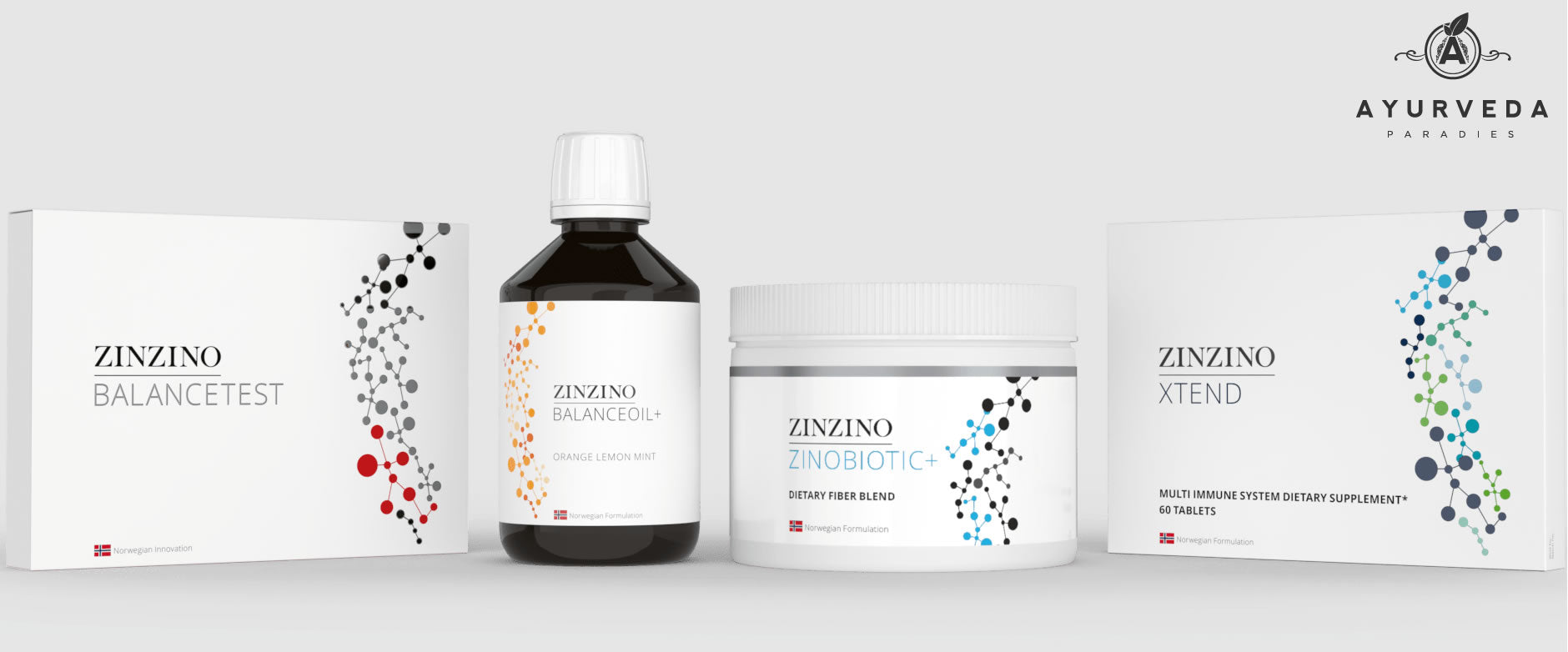





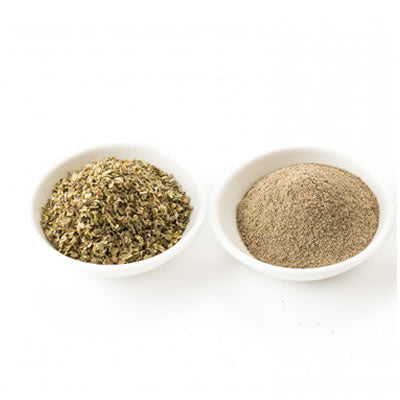




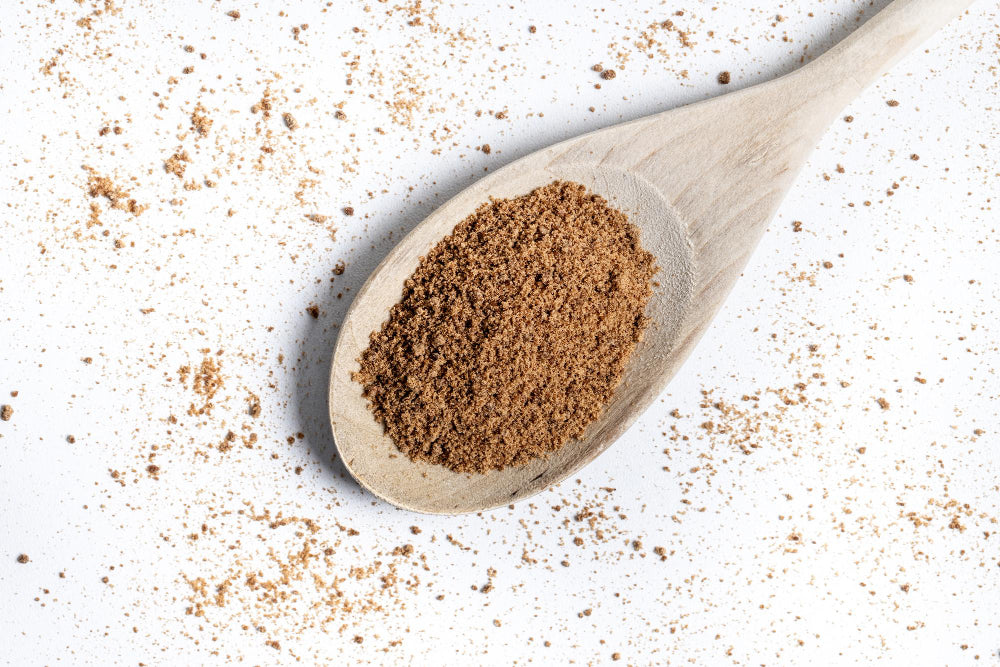



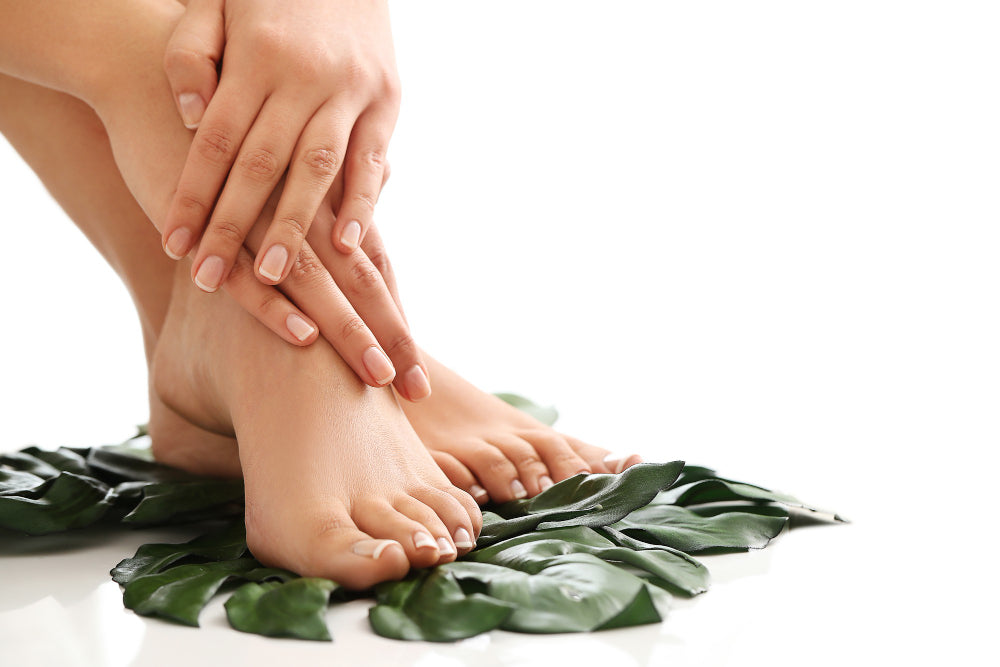


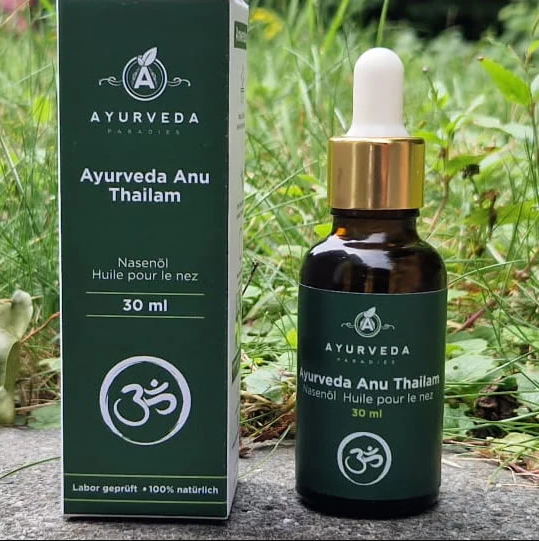





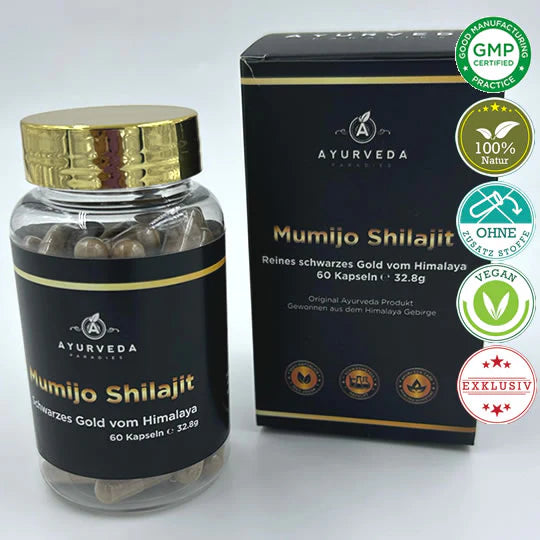















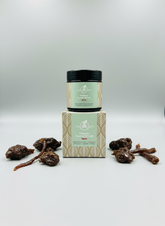







Leave a comment
Please note, comments need to be approved before they are published.